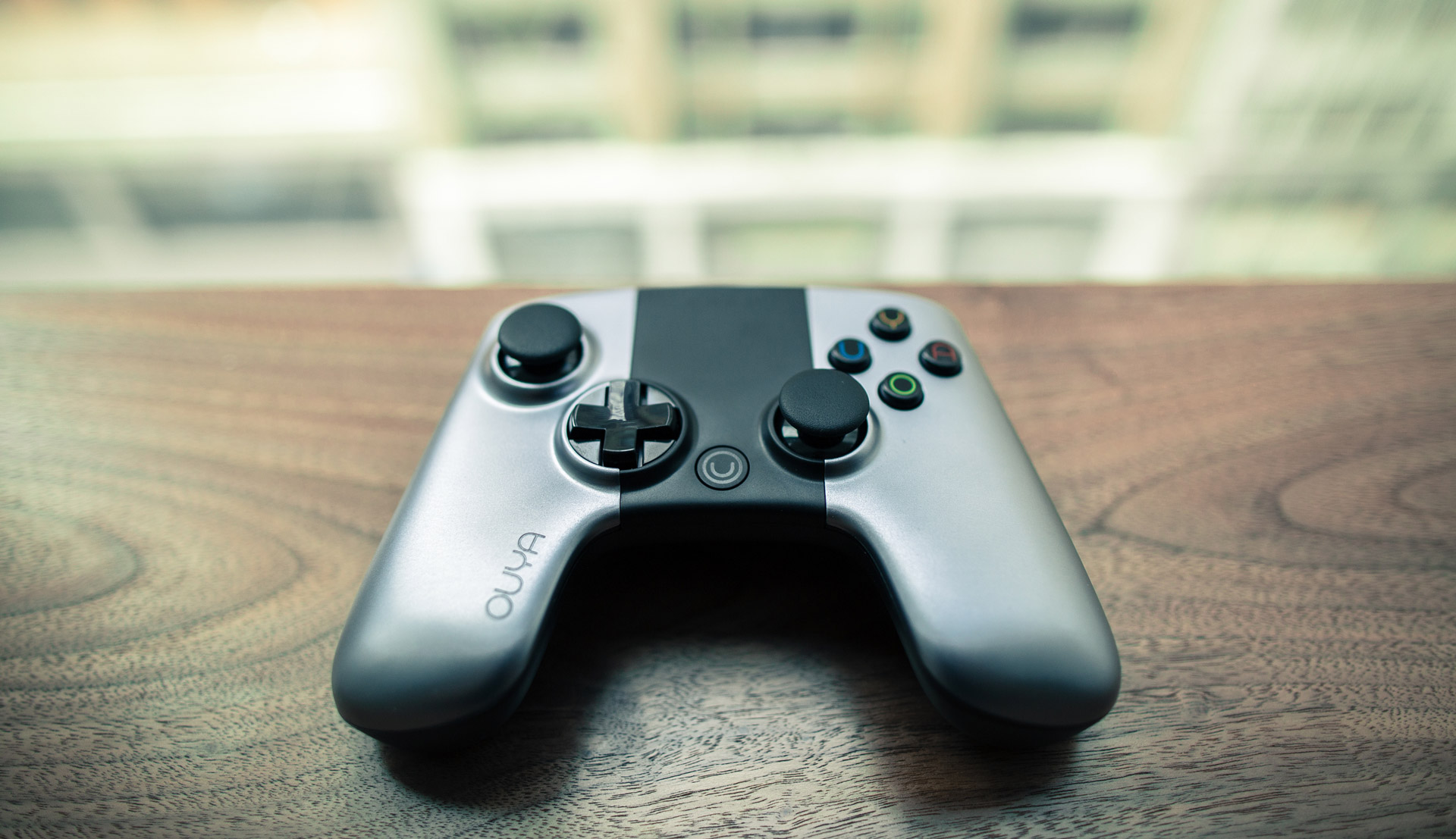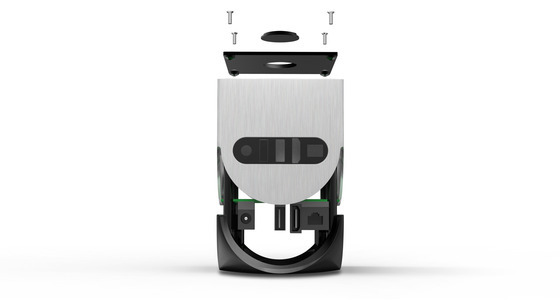/cdn.vox-cdn.com/uploads/chorus_image/image/21752371/ouya-review-hero.0.jpg)
The Android-based microconsole Ouya came out earlier this year, but true to the spirit of the self-described "scrappy console", plans for the Ouya 2 are already in the works and a redesigned controller will start quietly replacing the poorly received original.
While work on the next Ouya won't start in earnest until sometime next year, company founder Julie Uhrman told Polygon they're already looking at what to change in the guts of their system and even if they should tweak its sleek cube design.
What is already in the works, though, are refinements to the Ouya's controller, a big sticking point with just about everyone who picked up the console this year.
The company started by tweaking the software to reduce the latency and the lag people were experiencing, she said. Then they set to work on the controllers themselves, adding more textured thumbsticks, improved action buttons tweaked to ensure they won't stick when depressed and they even tightened the triggers.
"The feel of the controller today is actually probably a lot better then in June," she said. "Our goal is to build a great controller. We wanted to build something that was ergonomic, that had great weight, that had a great feel, that offered developers a different way to develop games by including a touch pad in the design.
"We're constantly going to work and iterate on the controller."

The downside of a company that constantly tweaks design, at least this company, is that those changes aren't called out in the packaging.
When asked how a consumer would know if they're getting the redesigned controllers or one of the remnant stock of the launch controllers, Uhrman had this to say: "You wouldn't know until you bought it."
When I pointed out that some people may not be happy about that she added, "I think what's different here is that every company does it, it's just that no one talks about it."
Uhrman said they've already changed over to the new design in production and no longer make the previous model. Also, if someone has a problem with their controller they can contact the company, she said.
"If people have had issues with thumbsticks or action buttons we've been replacing those and if you contact Ouya we'll do that today," she said. "But the majority of the feeback was on the connection and latency and we've improved that significantly with software updates. So the number one issue with controllers we've addressed and continue to address."
Many people got around the problematic controllers by simply using their PS3 or Xbox 360 controller, something that the Ouya was designed to support. But can the Ouya be successful without the extra money brought in from selling extra peripherals?
"Absolutely," Uhrman said. "The goal was always to break even on the hardware and you make money on the software through 30 percent revenue share. Obviously as the attach rate for additional controllers rises it goes from a break-even proposition to a making-money proposition."
And Uhrman said the company and its console could survive even if they had to give up on perfecting their controller.
"We want to provide a great experience to gamers and developers," she said. "So we want to improve our controller to make it so. If it doesn't happen that way, yeah, maybe we will abandon [the controllers] and allow you to pair anything you want with Ouya, because ultimately it's what's great for gamers.
"I think what's different here is that every company does it, it's just that no one talks about it."
"Part of that is taking that feedback, iterating that software, fixing the triggers, fixing the thumbsticks and if that doesn't work, we'll iterate it again and if we decide that's not the right path, we'll change it. I think that's one thing that differentiates us. We don't have this firm path we're going to stay on come hell or high water. We take the feedback from gamers, from developers and we iterate and we change. When it's not working we say so."
But the company isn't quite ready to give up on their controllers. The next Ouya will ship with those improved controllers. And the company isn't prioritizing whether their new console, expected to hit next year, will support the Xbox One and PlayStation 4's new controllers, hitting next month.
"I think being able to support third party accessories that aren't Ouya's is something that we've always been committed to," she said about supporting Xbox One and PS4 controllers. "How much focus we put into making sure those connections are the best they can be is really just a priority exercise."
And right now the priority is on perfecting the console they have out now with more games, more developers and the constant iteration of the system's software.
Early next year, they'll start working on Ouya 2 with a plan to ship the annualized console sometime in 2014.
"Our plan is to have Ouya 2.0 sometime next year, we haven't finalized the date of that," she said. "We're still determining what exactly we want that to be.
"The software is constantly iterating because we want to make it constantly better. We don't want to wait six months and then go boom here are all these new features and functionality For the hardware, we are looking at different chips. We are looking at what type of performance we want."
That means the team is listening to their gamers and talking to developers and even the companies behind game engines. They want to know which chips game engines will best support and what they need to do for developers to prevent design changes from fragmenting their marketplace, so that they can retain backwards compatibility.

On the design side of things, Ouya continues to work with designer Yves Behar, who Uhrman calls the creative co-founder of the company, to see how they can change the look of the console.
Whatever they end up with, Uhrman says, the new physical look of the thing will likely be more of an iterative change than a drastic one.
That iteration, both in software and hardware, is at the heart of the company's philosophy, it seems.
"Ouya is a very different product," Uhrman said. "We're not a traditional gaming company that comes out every six or seven years with a new console. We made it very clear that we're going to have a yearly refresh on the product, that we're going to continue to improve the performance, leveraging components that are on the market. We may never be first to market with those. We want to make sure we come to market when it justifies being on a different chip or higher performing chip."
Uhrman said the company hasn't yet decided if the new model will replace the old model when it hits next year or if the two will co-exist.
"Both are on the table," she said. "There are a lot of ways to think about that."
With the annual iteration of the console and a willingness to give up on the controller, if they can't sort it out, it begs the question: Is Ouya a hardware company or a software one?
"Today we're both," Uhrman said. "In the near future, five years from today, the console goes away and it becomes more of a software play. We're trying to build a robust platform with engaged developers and gamers where you can find unique, innovative content from Ouya that you can't find anywhere else and I think that's what incredibly differentiating for us.
"I think we have a great product that looks beautiful in the living room, that's performing better and better, but at the end of the day I think the console goes away, I always have."